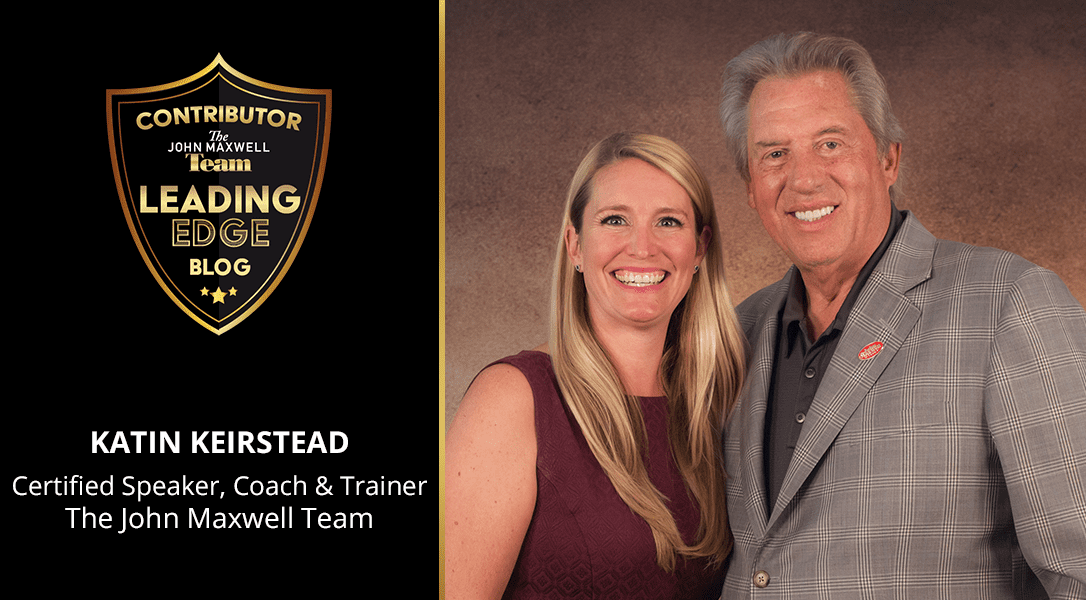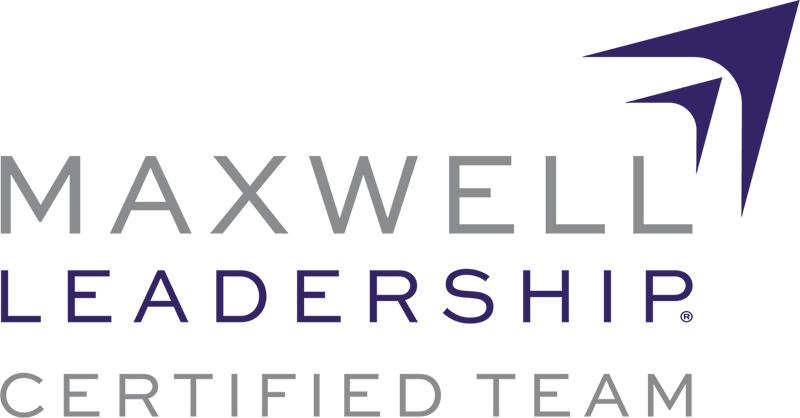The Leading Edge: Building my Team on Trust

By: Katin Keirstead
Are you at work? Look around you- do you see people? In every industry, in every specialty, in every corner of the globe, people find themselves relying on others to get important jobs done. And while many of us like to believe that our success is solely a product of our own hard work and determination, it’s hard to deny that, throughout our lives, we rely on others to support us, develop us, and mentor us.
It has been said that “wherever you go, there you are!” As much as we like to think we “leave our bags at the door,” we bring our whole selves to work– our messy, beautiful, imperfect selves (and yes, that includes you!). We become susceptible to miscommunication, lack of trust, conflict– these elements can throw even the most experienced teams and determined professionals off course.
In John C. Maxwell’s book The 21 Irrefutable Laws of Leadership, Law #6 is the Law of Solid Ground. John insists that trust is the foundation of leadership and adds, “How does a leader build trust? By consistently exemplifying competence, connection, and character.” This law resonates with me because trust requires much more than simply competence– trust relies on a connection with my people and a strong personal character.
To establish trust, I believe a leader must be two things: trusting and trustworthy. Let’s break those down.
Trusting– Consider asking yourself these questions:
- Do I trust each member of my team?
- Do I believe what they say?
- Do I have faith that they will deliver on their promises?
- Do I have confidence that they will work with integrity and not fritter their time away in meaningless pursuits?
Early in my leadership journey, I viewed my people with a wary eye and mistrusting heart. During stressful times when pressure was mounting, I felt that creeping sensation that my people couldn’t be trusted. I would have thoughts like, What time did Brian get here this morning anyway? Is Michelle’s son really sick today? I believed that people were trying to take advantage of me, as if it was simply human nature.
I’d show up in their classrooms unannounced to check up on them under the guise that I was “just here to say hi!” I’d come to the campus late at night to count whose cars were still there, because I didn’t trust them to stay if I wasn’t there to watch them.
My team members easily picked up on my mistrust, and it created a thick wall of disconnection that, once erected, was extremely difficult to overcome.
As a leader, I’ve found that in the rare instances when my trust was broken, it was because a person was seeking a positive result for themselves, not a negative result for me. Most people do not go around looking to betray or inflict pain on others.
Assuming that my team is acting with positive intentions, even when their behavior on the surface is misguided or inappropriate, helps me keep a heart focused on forgiveness. I forgive, support, empower, guide, and then I trust them some more.
Trustworthy– Simply put, if a leader is in the habit of breaking trust with their people, they lose the ability to influence them. In the early stages of a relationship, people are prone to trust their leader and take them at face value. Their credibility comes naturally from their position of authority.
As your team gets to know you (and your messy, beautiful, imperfect self begins to ooze out), they will begin to watch your behavior more closely, and they will determine whether to trust you or not. I find that, when my actions align with my words, if I act with integrity and admit my mistakes, my team’s level of trust in me deepens.
On the flip side, if I “talk the talk but don’t walk the walk,” if my message changes depending on who’s listening, or if I put up a wall that says “I don’t fail- I’m beyond that,” people move away from me. They retreat to the circles of people who make them feel safe. They may move to another department, or they may leave the organization entirely, and, since they don’t trust me, I’ll never know why.
They can (and likely will) forgive my imperfections – if I own them.
The Law of Solid Ground is a leadership lesson I had to learn the hard way years ago. Not trusting my team led to fractured relationships, a decline in business performance, and an endless cycle of finger-pointing- until the last finger was pointed at me.
Katin Keirstead is a certified speaker, trainer and coach with the John Maxwell Team. She has over 12 years of experience helping thousands of students and clients step out of their comfort zones, set meaningful personal and career goals and chart a path to achieve them! Katin believes that every individual and organization has a wealth of potential just waiting beneath the surface, and her purpose in life is to help them access and unleash their potential for transformational change. Learn more about her at http://www.johncmaxwellgroup.com/katinkeirstead.
